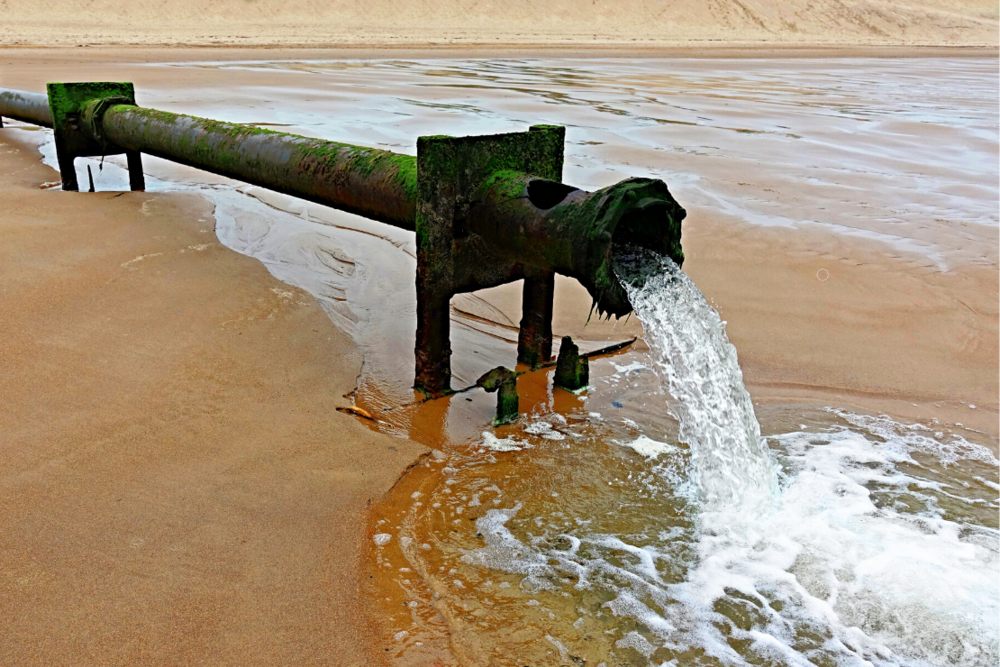Techstars Brings Startup Technologies to Land and Water Conservation with 2NDNATURE and The Nature Conservancy
Jul 16, 2020

The Nature Conservancy, a science-driven environmental organization, works around the world to conserve the lands and waters on which all life depends — by advancing powerful environmental solutions that scale. To August Ritter, The Nature Conservancy’s Sustainability Accelerator Program Director, technology can be a powerful lever to achieve that scale. August explains, “Look at all the technological disruption that’s transforming industries. We desperately need that disruption in conservation.”
Want to join us in fighting climate change? Check out the Techstars Sustainability Challenge! We’re bringing together founders, nonprofits, and universities with industry leaders, and we’ll choose the most promising ideas and partner the very best with top companies to build out real-world solutions.
In 2018, The Nature Conservancy partnered with Techstars to bring breakthrough technology startups to sustainability. The organizations launched The Techstars Sustainability Accelerator in Partnership with The Nature Conservancy, kicking off a program in which Techstars recruits 30 startups over three years to receive unlimited access to Techstars’ and The Nature Conservancy’s expertise.
The Nature Conservancy’s goals for the partnership were clear:
Recruit 30 startup companies focused on meaningful environmental impact
Unlock best practices for leveraging technology to solve environmental problems
Bring more entrepreneurs into the sustainability space
Drive more investor dollars into sustainability
2NDNATURE Digitizes Urban Stormwater Management
One startup, 2NDNATURE, illustrates how technology can be leveraged to solve big environmental challenges, by combating America’s fastest growing source of water pollution — urban stormwater. When excess rainwater in cities flows into gutters, it travels straight into lakes, rivers, and oceans, carrying litter and other harmful pollutants right along with it. August says, “Urban sprawl has created concrete dominated landscapes around the world. This has been detrimental to the quality of water in our rivers and coastal areas.”

August Ritter, The Nature Conservancy’s Sustainability Accelerator Program Director
For decades, cities have been trying to track their pollution mitigation efforts — such as street sweeping, green infrastructure development, and trash-reduction programs — with paper-and-pencil processes and non-standardized data collection methods. Expensive and error-prone, this old-school approach lacks the uniformity and data-driven best practices to show what’s working and what isn’t. “It’s a classic case of using an academic approach on an applied problem — collecting a lot of data but not having the right information to guide decision making and investment of resources,” says Nicole Beck, Founder and CEO of 2NDNATURE.
Learn more about how 2NDNATURE is fighting urban stormwater pollution.
Furthermore, to comply with The Clean Water Act, cities spend hundreds of hours gathering data from disparate regional offices, manually entering it into spreadsheets, and compiling compliance reports. In 2016, The City of Salinas, California, for example, spent hundreds of thousands of dollars on sampling data and over 1,000 hours from several staff to compile its 3,000 page PDF annual report for the State Water Quality Control Board.
In 2017, 2NDNATURE launched a cloud-based platform for digitally managing urban stormwater programs, and The City of Salinas signed on as an early customer. Not only did the platform give the city a uniform process for collecting field data, it enabled them to enter data through mobile apps, instantly synchronized data to the cloud, and digitally translated the data into insights on maps and standardized, color-coded categories. Stormwater managers can easily see what is working to reduce pollution, iterate on it, share performance data across multiple stakeholders, and generate compliance-ready annual reports with just a few clicks. 2NDNATURE has helped The City of Salinas transform their stormwater management into a performance-based program focused on clean water outcomes — and also reduced costs by 2x.
Read the case study for more a more in-depth look at how TNC and 2NDNATURE made innovation happen, together.

Nicole Beck, Founder of 2NDNATURE, at Demo Day. Credit: © Kari Geha.
Technologies like 2NDNATURE’s are just the type of scalable innovation The Nature Conservancy sought to significantly advance land and water conservation. August explains, “There are a number of important co-benefits that occur when cities build green infrastructure, but they are hard to quantify. 2NDNATURE’s platform is helping do that. They are helping cities better understand the ROI of green infrastructure investments in a way they haven’t been able to do yet.”
Read about how Norwegian energy giant Equinor is innovating with startup Fieldmade to reduce C02 emissions and save money.
Powerful Partnerships Drive Real Environmental Return
In going through the Sustainability Accelerator, 2NDNATURE gained 800 new leads, $6M in new deals, and expansion into a new state. Techstars expert entrepreneur mentors also helped the startup improve product development time by 3x. Says Jason Yoho, 2NDNATURE’s Chief Commercial Officer, “Everything we got out of the accelerator program has real value to our business.”
Thanks to the collaboration, the possibilities for positive environmental impact extend beyond urban stormwater pollution. Explains Nicole, "We want to empower cities to invest in green stormwater infrastructure in a way that cleans water, builds economic resiliency, and mitigates climate change. The Nature Conservancy is a great partner for those outcomes.”
2NDNATURE is one of 20 startup graduates so far to achieve growth and measurable environmental return from The Nature Conservancy-Techstars alliance. Partnerships like this, that bring together startups with large organizations, are critical for rapid, productive innovation. In order to successfully fight climate change, partnerships and innovations like these are crucial.
Interested in joining the global platform for innovation? Learn more about Techstars membership and accelerator partnership opportunities.
